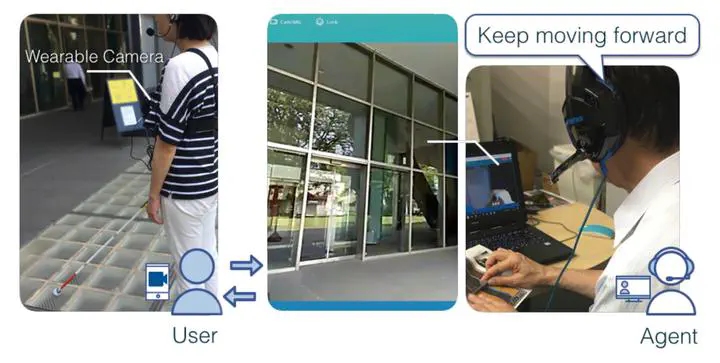Support Strategies for Remote Guides in Assisting People with Visual Impairments for Effective Indoor Navigation

Abstract
People with visual impairments often require mobility assistance of sighted guides but they are not always available. Recent technological strides have opened up new directions for sighted guidance services, assigning guides from a network of remote workers to provide real-time assistance via audio/video communication. However, little has been known regarding desirable support characteristics of remote guides or challenges experienced in guide practices without the requisite expertise. To recommend support strategies that contribute to facilitating a successful platform for remote sighted guidance, this paper presents a comparative study of the performance of trained and untrained sighted guides who are recruited for a remote scenario in assisting people with visual impairments in indoor navigation. As an outcome of this research, we provide a deeper understanding of design opportunities for HCI to scaffold requirements of remote guides, such that their collaborative efforts and environmental knowledge influence the user experience. Based on our empirical insights, we suggest to develop the expertise of remote guides through: a) preliminary guidance cooperation awareness b) guidelines for verbal description methods, and c) approaches to compensate for the lack of environmental knowledge.